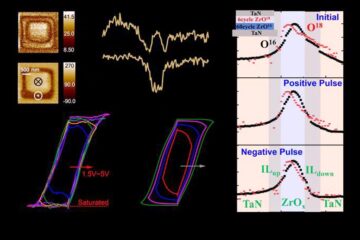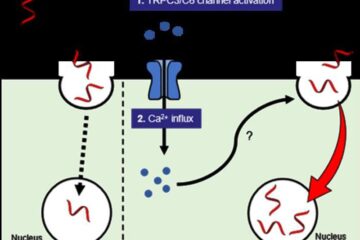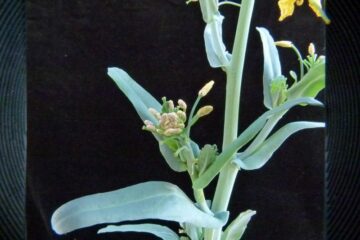Children who develop asthma have lung function deficits as neonates

“Previous research on the relationship between neonatal lung function and the development of asthma has been conflicting,” said lead author Hans Bisgaard, MD, DMSci, professor of pediatrics at the University of Copenhagen and head of the Danish Pediatric Asthma Centre. “Our study shows that children with asthma by age seven already had significant airflow deficits and increased bronchial responsiveness as neonates. Lung function deficits also progressed throughout childhood in our study, suggesting a potential opportunity for early intervention.”
The findings were published online ahead of print publication in the American Thoracic Society's American Journal of Respiratory and Critical Care Medicine.
The prospective study enrolled a birth cohort of 411 at-risk children of asthmatic mothers. Spirometry was performed at one month in 403 (98 percent) children and again at age seven in 317 (77 percent).
Significant neonatal airflow deficits, as measured by forced expiratory flow at 50 percent% of vital capacity and forced expiratory volume after 0.5 seconds, were observed among the 14 percent of children who developed asthma by age seven. Bronchial responsiveness to methacholine, which provokes narrowing of the airways, was also significantly associated with the development of asthma. Neonatal airway reactivity was a stronger predictor of asthma than neonatal lung function.
“We found that approximately 40% of the airflow deficit that was associated with asthma in our study was present at birth, while 60% developed through early childhood along with the disease,” noted Dr. Bisgaard. “This indicates that both prenatal and early childhood mechanisms are potential intervention targets for the prevention of asthma.”
The study used a homogenous study sample, which might limit extrapolation of the results to other populations.
“It seems that lung function changes associated with asthma occur very early in life and maybe even before birth,” concluded Dr. Bisgaard. “This may explain the lack of effect from early intervention with inhaled corticosteroids and should direct research into the pathogenesis and prevention of asthma towards the earliest phases of life.”
About the American Journal of Respiratory and Critical Care Medicine:
With an impact factor of 10.191, the AJRRCM is a peer-reviewed journal published by the American Thoracic Society.It aims to publish the most innovative science and the highest quality reviews, practice guidelines and statements in the pulmonary, critical care and sleep-related fields. Founded in 1905, the American Thoracic Society is the world's leading medical association dedicated to advancing pulmonary, critical care and sleep medicine. The Society's 15,000 members prevent and fight respiratory disease around the globe through research, education, patient care and advocacy.
Media Contact
More Information:
http://www.thoracic.orgAll latest news from the category: Health and Medicine
This subject area encompasses research and studies in the field of human medicine.
Among the wide-ranging list of topics covered here are anesthesiology, anatomy, surgery, human genetics, hygiene and environmental medicine, internal medicine, neurology, pharmacology, physiology, urology and dental medicine.
Newest articles

Evidence for reversible oxygen ion movement during electrical pulsing
…enabler of the emerging ferroelectricity in binary oxides. In a recent study published in Materials Futures, researchers have uncovered a pivotal mechanism driving the emergence of ferroelectricity in binary oxides….

Next-generation treatments hitch a ride into cancer cells
Researchers from Osaka University discover that opening a channel into cancer cells helps antisense oligonucleotide drugs reach their targets. Antisense oligonucleotides (ASOs) are next-generation drugs that can treat disease by…

Boron deficiency: oilseed rape reacts as with infection and pest infestation
Genetic mechanisms uncovered… Boron deficiency has a devastating effect on oilseed rape and related plants. However, little is known about the underlying genetic mechanisms. A study shows that the response…





















